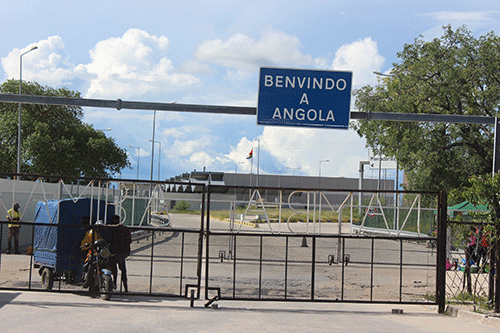Lahja Nashuuta
The United States government, through its 2024 Trafficking in Persons Report, has commended Namibia for its efforts to eliminate human trafficking.
The report reveals that although Namibia does not fully meet the minimum standards for the elimination of trafficking, the government has demonstrated overall increasing efforts, compared with the previous reporting period.
The country was urged to “strengthen coordination and collaboration mechanisms across government ministries and with civil society partners to ensure clear roles and responsibilities, effective anti-trafficking policies, as well as increased communication”.
Besides that, Namibia is advised to “increase the availability of protection services, including short-term shelter, long-term housing and specialised services for all trafficking victims, particularly adult males and female victims of forced labour abroad, including by partnering with and allocating increased funding to civil society organisations”.
Through the report, Namibia has been credited for its efforts, especially in terms of investigations, prosecutions and conviction of traffickers.
Among the efforts are the government’s anti-trafficking training for law-enforcement, members of the judiciary, social welfare professionals and civil society on implementing the Combating Trafficking in Persons Act of 2018.
Namibia has acknowledged its efforts to ensure the identification of trafficking victims, and has referred all victims to services.
Other notable progress includes the launch of a 2023-2027 anti-trafficking National Action Plan (NAP), and conducting training sessions on the NAP for government and community stakeholders.
Despite the progress, the report reveals that Namibia remains on Tier Two, a ranking system of three tiers created by the US Department of State to measure progress to monitor human trafficking on a global scale.
The second tier includes countries which are not yet fulfilling their obligations under the minimum Trafficking Victims Protection standards, but are actively trying to get there.
Based on the report, countries falling under Tier Two are a signal that the government did not adequately screen vulnerable groups for trafficking indicators.
Moreover, there is limited understanding and inconsistent use of the National Referral Mechanism and updated Standard Operating Procedures for victim identification by frontline officials, which continued to hinder overall efforts.
Not all jurisdictions had sufficient law-enforcement coverage, which left gaps in the government’s ability to investigate trafficking cases.
In addition, Namibia was acknowledged for its enactment of a legal framework to curb human trafficking in persons.
The Combating of Trafficking in Persons Act of 2018 criminalised sex trafficking and labour trafficking.
It prescribed penalties of up to 30 years imprisonment or a fine not exceeding N$1 million, or both.
According to the Act, those penalties were sufficiently stringent, and concerning sex trafficking, commensurate with punishments prescribed for other serious crimes such as kidnapping.
However, the US report reveals concern over the influx of minor Angolan labourers in the
country.
The statistics contained in the report show that there are more than 1 250 Angolan children who live in informal settlements in Namibia.
These children are presumed to be subjected to sex trafficking and forced labour, particularly in agriculture, cattle herding, domestic servitude and street vending in Windhoek and other urban centres, as well as in the fishing industry.
The report states that so far, Namibia has initiated seven trafficking investigations involving 23 suspects (two for sex trafficking, two for labour trafficking and three for unspecified forms of trafficking).
Furthermore, the government reported continuing 12 investigations involving 17 suspects from previous reporting periods (one sex trafficking case and 11 labour trafficking cases).
The Namibian government has to date prosecuted 20 defendants in five cases in the last five years.
The government reported ongoing prosecutions of 30 defendants in 12 cases from previous reporting periods (seven for sex trafficking and five for labour trafficking).
The government reported that courts convicted four defendants for unspecified forms of trafficking under the 2018 anti-trafficking law.
The government reported four traffickers were sentenced to six years’ imprisonment.
Through the report, the US has urged Namibia to be proactive in identifying trafficking victims.
This includes screening vulnerable populations, such as individuals engaged in commercial sex, children, migrants, refugees and Cuban government-affiliated medical workers.
Other measures include referring all identified trafficking victims to services, especially in rural and border regions.
-lnashuuta@gmail.com



